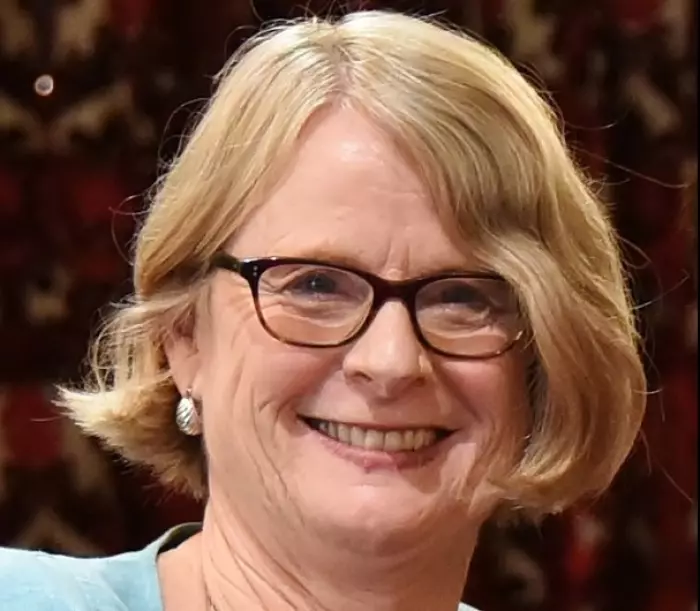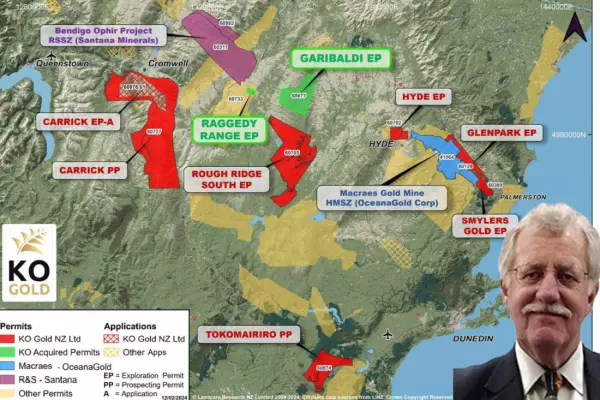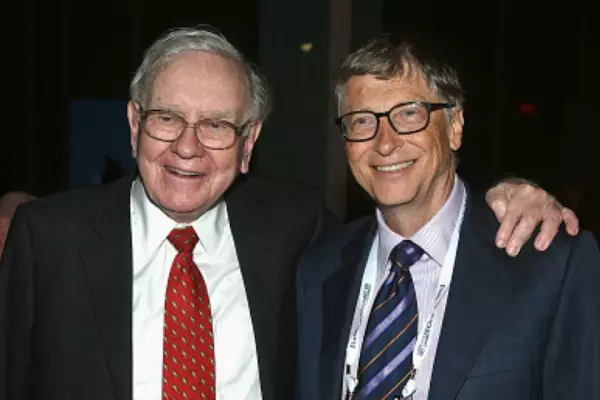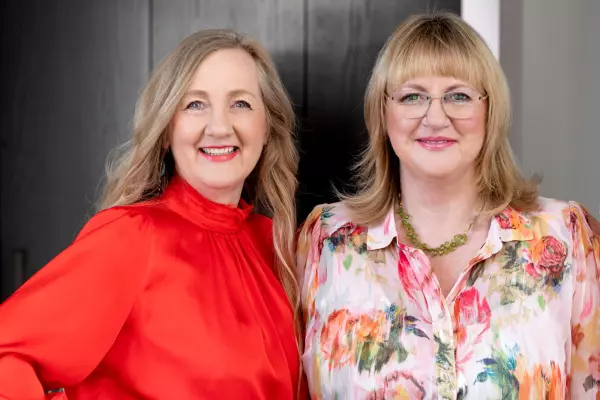Philanthropists are praised for their generosity for the public good, but their actions are only half the equation.
On the other side, there's an army of ‘philanthrocrats’ who gather and guide grantmakers, lobby to promote and safeguard the gift of giving, and provide direction and expertise so donors can maximise the bang for their bucks. Theirs are paid roles.
Jenny Gill is one of New Zealand’s longest-serving and most widely-recognised philanthrocrats, a pioneer in many facets of a relatively young sector compared with not-for-profits in other countries.
As executive director of the Roy McKenzie Foundation, she was on the ground floor in 1984 when McKenzie proposed a membership philanthropy organisation like those he had seen overseas.
The Association of Grant Givers launched in 1990 and later became Philanthropy NZ.
Gill was a founding director and would toggle director and chair roles for 23 years alongside a slew of roles as director, trustee, chief executive or executive director of foundations and organisations in the not-for-profit sector.
She is now a life member of Philanthropy NZ and received the Officer of the Order of NZ Merit (ONZM) in 2017, the pinnacle of a number of awards she has received for her dedication and achievements in philanthropy.
Father's trust legacy
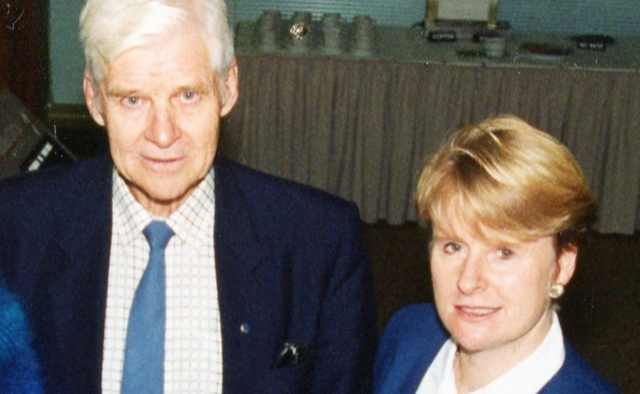
Roy McKenzie (pictured above with Gill) was the only surviving son of John McKenzie, one of NZ’s richest and most generous benefactors, who owned the chain of McKenzies general merchandise stores in Australia and NZ before they were taken over by LD Nathan in 1980.
Roy carried on his father’s trust legacy alongside the successful and still existent private family investment firm, Rangatira Ltd.
Philanthropy NZ sums up its purpose as a philanthropic ecosystem for collaboration, training, encouraging best practices and sharing data and research.
It draws big-name philanthropists from overseas to its conferences.
When Gill started working for Roy McKenzie in 1984 she was the only person in NZ employed to work in philanthropy as a grantmaker for a grantmaking foundation.
“Now there would be hundreds of people working in this sector,” she says.
Today she focuses on not-for-profit governance in a private consulting role, but still holds directorships at Vodafone Foundation, Prince’s Trust, MAS Foundation and she is the chair of the advisory board for the Diana Unwin chair in restorative justice at Victoria University of Wellington.
It’s a world away from growing up (happily, she says) at Waiouru army camp where her father, Lieutenant Colonel Jack Thompson Gill, directed the cadet school, then army education.
Gill became a primary school teacher after university but soon realised that “it was an aberration because I have always been interested in the not-for-profit sector”.
She says her first job was at Presbyterian Support Services in Auckland. She had also volunteered for the Council of Relief Services (CORSO). It took her to India and Sri Lanka and she helped set up the first Trade Aid shop in Auckland.
“University in the early seventies was a real sense of promoting social justice,” Gill says.
“It was a time of anti-Vietnam war protests, the rise of feminism, the Māori language petition and all sorts of interesting social movements,” she says.
“For me, it was a logical segue into the not-for-profit sector.”
In 1979 she landed a job at the YWCA in Wellington and during that time had her first child.
She and her husband Harry Doig, have three children, Tom, Alice and Jack, all influenced, Gill says, by the work she and her husband have done. He works in local government.
In 1984 Gill met Roy McKenzie. “I knew he was looking for someone to run his personal foundation,” she says. “I walked into the office and came out with a job, starting the following Monday.”
As a spend-down foundation, it was set up to close within a decade. “It was truly an extraordinary eight years working alongside this very modest but very generous man.”
Pioneering
As well as Philanthropy NZ Gill was involved with Roy McKenzie in setting up Funding Information Services, later renamed Generosity NZ – today the largest digital search facility for funding information in NZ.
At its first meeting in 1990, Philanthropy NZ attracted 30 people. Today, 120 organisations and individuals and up to 400 people attend its conferences. It also has a close relationship with Philanthropy Australia.
Gill says her work has always covered the gamut of not-for-profits as well as traditional social service charities. She says not-for-profits play a big role in overseas aid, the environment, arts and sports and recreation.
One of her biggest concerns for charities is how much returns of smaller charities are gouged by administration fees, an issue she says is invisible to the public.
“When the Charities Commission [the predecessor to Charities Services] was first set up it was completely under-scoped and the original database was set up on the assumption that the Methodist Church was one charitable entity, the Roman Catholic Church and the Church of England another.
“I don’t think the [charities] sector has ever been really well understood by any of the government agencies that were set up to monitor it.”
Gill considers Philanthropy NZ’s greatest achievement was when, after 20 years of lobbying, government ministers' caps on dollar amounts of charitable donations eligible for tax concessions were removed.
She said Roy McKenzie pushed for it because he believed it would further unlock the generosity of New Zealanders.
A 2003 cap of $1,890 eligible for tax rebates was scrapped in 2007 and replaced with rebates on donations up to the level of taxable income for individuals and up to the annual net income for Māori entities and companies.
Corporate responsibility
Gill is optimistic about a new era of companies focused on social purpose and social licence. She says corporate philanthropy in NZ is still very low by worldwide standards but social responsibility is being driven by issues such as climate and social change and ethical investing.
“When the triple bottom line [social, environmental and financial performance] first came about, it forced people in companies to think how there was more to business than just returns for shareholders.”
Gill says there is a growing trend towards impact investing, sometimes known as community investing, where grantmakers aim to generate financial returns while also creating a positive social or environmental impact.
“Climate change is arguably one of the most significant issues facing NZ, yet the amount of philanthropic money dedicated to addressing environment and climate change issues is low and of concern,” she says.
Gill says exceptions include the Tindall and Next foundations, Foundation North and The Aotearoa Circle, but she says funds are still scarce, possibly because of climate sceptics and an attitude that the government takes care of environmental issues.
“The Tindall Foundation’s support for pest eradication and reafforestation shows how issues can be resolved by working in partnerships," she says, referring to the Warehouse founder Stephen Tindall’s foundation.
"You need volunteers, government departments like the Department of Conversation, local councils and philanthropic funding and government legislation to work in harmony.
“Every business in New Zealand needs to think about their social licence to operate and what that means in terms of their policies.
“In the primary product sector, it’s how they treat the air, water and soil. In the social sector, it’s how they give back to the communities they are part of.
“If we are going to solve deeply entrenched problems in New Zealand like housing, then we need endowed philanthropic trusts and others to look at how they can invest their endowment funds and get a double bang for their money. With a social housing project, you look not only at getting a return but also your endowment working for the public good.”
Giving nation
The Charities Aid Foundation (CAF) World Giving Index 2018 rated NZ third out of 146 countries (behind Indonesia and Australia) for helping strangers, donating money and volunteering.
“We have a long history of a welfare state and relatively high levels of taxation in New Zealand in order for the government to deliver it,” Gill says.
“I’m a big supporter of the welfare state so I am not uncomfortable with the current position,” she says. “I used to say frequently that philanthropy provides the venture capital of social change.
“We continually rank among the top countries so we shouldn’t beat ourselves up too much. It’s the glue.”
Good listener
Gill says her greatest joy working in philanthropy is listening carefully to people, a skill she learned from Roy McKenzie.
“He was incredibly accessible to people and he would listen and they would come and talk to him. People talk to you about their dreams and aspirations and are passionate about making their communities a better place”.
Gill says she is driven and organised but also has doses of self-doubt.
Those who have worked with Gill sum her up as a woman with wisdom and guidance across the philanthropic spectrum.
One referee wrote on her LinkedIn profile: “She is an inspiring leader who holds the big picture at all times, but retains the rapport and empathy to touch the fine detail when required very effectively.”
She is 70 but says it will be a while yet before she fully retires and can devote more time to her love of outdoor pursuits and reading.
“You get to the point where you have thought about this stuff for the last 40 years so I am happy to keep on being involved in the sector,” she says.


